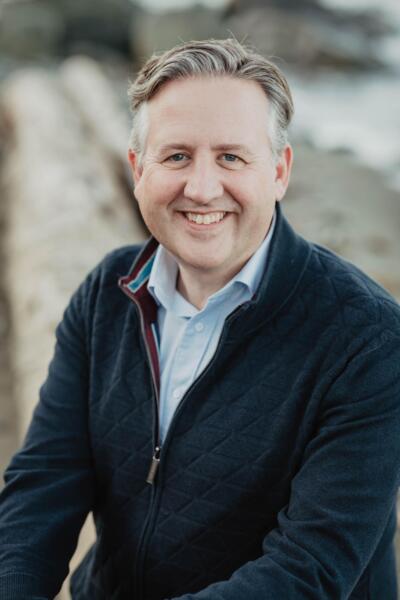1972 Make injection sites, not criminals
Decrim: How We Decriminalized Drugs in British Columbia
by Kennedy Stewart
Madeira Park: Harbour Publishing, 2023
$24.95 / 9781990776304
Reviewed by Ron Verzuh
*
 Former Vancouver mayor Kennedy Stewart speaks from political experience when he describes the struggle to have hard drugs like heroin and cocaine decriminalized in Canada’s third largest city. He also speaks from the heart, but there is a measure of bitterness in his account of the path to success.
Former Vancouver mayor Kennedy Stewart speaks from political experience when he describes the struggle to have hard drugs like heroin and cocaine decriminalized in Canada’s third largest city. He also speaks from the heart, but there is a measure of bitterness in his account of the path to success.
Stewart’s path involved two terms as a New Democratic Party member of Parliament (he calls himself a democratic socialist), a position at Simon Fraser University’s School of Public Policy and most significantly his one term as mayor of Vancouver (2018-2022). The book portrays him as a champion of decriminalization who encounters multiple barriers at all levels of government.
Decrim is not the most alluring book title, but it does focus readers on a solution to the problems of drug users being poisoned by bad drugs and being forced into lives of misery and frequently death. In fact, an Angus Reid poll shows that 5 per cent of Canadians (about 1.5 million residents) “have known someone who died from an overdose.” So it’s closer to home than some of us may think.
Decrim offers a civics lesson on how to manoeuvre a controversial issue through official channels, providing a detailed guide to the problem and the difficult struggle to solve it. It is also a short autobiography wherein Stewart credits other MPs, particularly Libby Davies, for helping him get elected in spite of strong right-wing opposition.

Most importantly, it is a sympathetic analysis of what drug users and their families face on the streets and in the criminal justice system. Stewart cites the first-hand experience of a relative, Susan Havelock, who died from using poisoned drugs. He devotes a full chapter to her plight.
The fight for decriminalization was hindered by Stewart’s lack of seats on the 10-member city council – he had none. Shauna Sylvestre, another mayoral candidate for mayor, also supported decriminalization. But current mayor Ken Sim’s victory, with a full right-wing slate, has slowed progress that both Stewart and Sylvestre advocated.
The situation became more contentious as right-wing naysayers played on people’s fears about junkies living on their streets with the associated refuse left behind. Both Sim and federal Conservative Party leader Pierre Poilievre have assumed law-and-order postures. “Decriminalizing deadly drug use is the opposite of compassion,” Poilievre has said. He agreed that addicts need to have treatment and recovery, but has advocated for more “policing and tough sentences” for drug pushers.
Stewart also points the finger at the Vancouver Police Union, “Christianity-based, unicultural, abstinence-style programs,” and the NIMBYs (not in my back yard). Nor do “anti-vaxxer bigots” escape criticism. They are “often associated with hate groups,” he argues, adding that the “NIMBYs and gentrifiers had banded together with far-right anti-vaxxers.”
With the battle lines drawn, what is essentially a public health issue was transformed into a concern about public safety and a perceived threat of reduced property values. As the sides faced off, decrim advocates found no solace from former B.C. premier John Horgan.
“Premier Horgan had not internalized the issue of illicit drug-related deaths and was not prepared to take action beyond what his government was already doing,” argues Stewart. He describes a testy relationship with the premier punctuated by Horgan’s angry refusal to meet with him and his open hostility toward him. This in spite of B.C. health officer Dr. Bonnie Henry’s urging his government to “decriminalize people who use drugs.”
To his credit, Stewart has doggedly pursued this issue. This is his story and his book is an object lesson in finding a political path to solution. It does not thoroughly cover other viewpoints. Also, unfolding events have hindered post-decriminalization programs in other jurisdictions. Recently, the New York Times noted some problems with both the Portugal and Oregon decriminalization programs, although both are strongly committed to decriminalization.
Safe supply provision, treatment centres, injection sites, needle exchanges, mental health assistance, and other parts of the decriminalization strategy are essential to making such programs work. Whether Vancouver can mitigate the problems being experienced in Oregon and Portugal, remains to be seen, but with a conservative mayor and council progress could be less likely.
As difficult as it might be for some of us to grasp the magnitude of this gigantic social problem, it is not at all difficult for families of the 8,000 people who died from opioid causes in 2021. Decrim argues convincingly that it should not be difficult for the rest of us either.
When I was growing up in the 1960s, it was cool to smoke dope. It was risky and that made it cooler. Cooler still to drop acid. Then, heavy drugs set in and friends of mine started using them. Way cool! Well, not really. Some of them died of overdoses. Others got hooked and ended up living rough on Vancouver’s downtown streets.
I adopted the attitude that their predicament was their own fault and that society had no responsibility to help them as they slipped deeper into a life of illegal drug use and subsequent police drug squad harassment. It was an unenlightened and wrong-headed attitude that I eventually abandoned. I hope readers of Decrim will also take that path.
*

Ron Verzuh is a writer, historian and documentary filmmaker. His latest book is Printer’s Devils (Caitlin Press, 2023). [Editor’s note: Ron Verzuh has recently reviewed books by Henry Tsang, Robert Lower, Benjamin Isitt & Ravi Malhotra, Marc Edge, Bobbi Hunter (editor), BC Hydro Power Pioneers with Kerry Gold for The British Columbia Review, and he has contributed an essay on trade unionist Harvey Murphy.] Ron lives in Victoria.
*
The British Columbia Review
Interim Editors, 2023-24: Trevor Marc Hughes (non-fiction), Brett Josef Grubisic (fiction)
Publisher: Richard Mackie
Formerly The Ormsby Review, The British Columbia Review is an on-line book review and journal service for BC writers and readers. The Advisory Board now consists of Jean Barman, Wade Davis, Robin Fisher, Barry Gough, Hugh Johnston, Kathy Mezei, Patricia Roy, Maria Tippett, and Graeme Wynn. Provincial Government Patron (since September 2018): Creative BC. Honorary Patron: Yosef Wosk. Scholarly Patron: SFU Graduate Liberal Studies. The British Columbia Review was founded in 2016 by Richard Mackie and Alan Twigg.
“Only connect.” – E.M. Forster
6 comments on “1972 Make injection sites, not criminals”